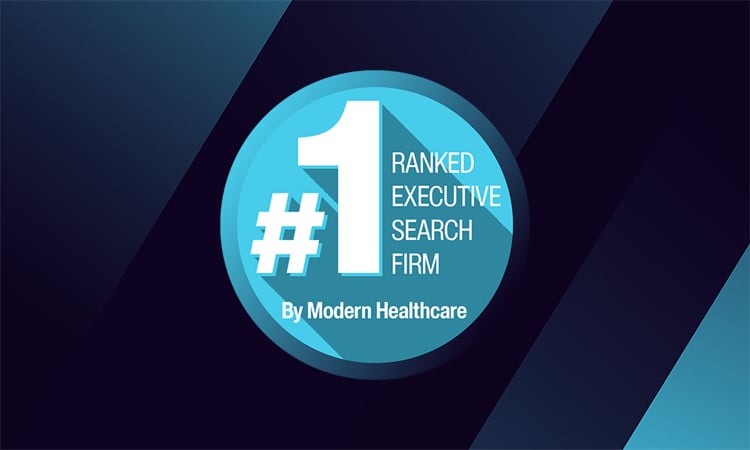
Mastering Behavioral Interview Questions: A Guide for Healthcare Leaders
In the world of healthcare, leadership roles require more than just technical expertise. They demand excellent interpersonal skills, strategic thinking, and the ability to adapt to a fast-changing environment. Therefore, when it comes to hiring healthcare leaders, asking the right behavioral interview questions is important. These questions help uncover a candidate's past behavior and predict how they might perform in future roles.
This guide provides an overview of common behavioral interview questions tailored for healthcare leaders. Whether you're a healthcare executive, or a nurse manager, this guide will equip you with the insights needed to conduct effective interviews. We'll explore essential questions for various leadership roles, including interim, academic, executive, C-suite, and chief nursing officer candidates.
What Are Behavioral Interview Questions?
Behavioral interview questions are designed to assess a candidate's past experiences and behaviors. By focusing on real-life scenarios, these questions provide valuable insights into how candidates handle challenges, make decisions, and interact with colleagues.
For healthcare leaders, this approach is especially significant as it helps identify individuals who can thrive in high-pressure environments and drive positive change within their organizations.
Behavioral questions also allow interviewers to gauge a candidate's cultural fit. In healthcare, where teamwork and collaboration are vital, understanding how potential leaders align with the organization's values and mission is essential. By incorporating these questions into the interview process, you can identify candidates who possess the necessary leadership qualities and align with your organization's goals.
Furthermore, behavioral interview questions help reduce bias and subjectivity in the hiring process. By focusing on specific situations and actions, interviewers can evaluate candidates based on their demonstrated skills and achievements, rather than relying solely on gut instincts or first impressions.
Common Behavioral Interview Questions for Healthcare Leaders
When interviewing healthcare leaders, it's important to tailor your questions to the specific challenges and responsibilities associated with their roles. Here are some common behavioral interview questions that can help you assess candidates effectively:
Leadership and Decision-Making
1. Can you describe a situation where you had to make a difficult decision with limited information? How did you approach it, and what was the outcome?
In healthcare leadership, decision-making often involves navigating complex situations with incomplete data. By asking this question, you can gauge a candidate's ability to analyze information, prioritize tasks, and make sound decisions under pressure.
2: Tell me about a time when you had to lead a team through a significant change or transition. How did you ensure a smooth transition, and what strategies did you use to gain buy-in from your team?
Leadership in healthcare often involves managing change, whether it's implementing new protocols, integrating technology, or restructuring departments. This question helps assess a candidate's ability to inspire and motivate their team during periods of change.
3. Describe a situation where you had to handle a conflict between team members. How did you address the conflict, and what steps did you take to ensure a positive resolution?
Conflict resolution skills are essential for healthcare leaders to maintain a harmonious and productive work environment. By exploring how candidates handle conflicts, you can evaluate their ability to foster collaboration and build strong relationships within their teams.
Communication and Interpersonal Skills
1. Can you provide an example of a time when you had to communicate complex information to a diverse audience? How did you ensure the message was understood and well-received?
Effective communication is crucial in healthcare, where conveying information clearly and concisely is essential for patient care and collaboration. This question helps assess a candidate's ability to adapt their communication style to different audiences and ensure effective information sharing.
2. Tell me about a situation where you had to influence or persuade others to adopt a new initiative or change. How did you approach it, and what strategies did you use to gain support?
Healthcare leaders often need to advocate for change and gain buy-in from stakeholders. By asking this question, you can evaluate a candidate's ability to inspire others, build consensus, and drive positive outcomes.
3. Describe a time when you had to deliver feedback to a team member who was not meeting expectations. How did you approach the conversation, and what actions did you take to support their improvement?
Providing constructive feedback is a critical skill for healthcare leaders to foster growth and development within their teams. This question helps assess a candidate's ability to deliver feedback effectively and create a supportive environment for improvement.
Problem-Solving and Critical Thinking
1. Can you share an example of a complex problem you encountered in your role as a healthcare leader? How did you approach the problem, and what steps did you take to find a solution?
Problem-solving is a core competency for healthcare leaders, as they often face multifaceted challenges requiring innovative solutions. This question allows you to evaluate a candidate's analytical thinking and ability to develop practical solutions.
2. Tell me about a time when you had to make a quick decision in a high-pressure situation. How did you handle the situation, and what was the outcome?
Healthcare leaders frequently encounter time-sensitive situations where quick decision-making is crucial. By asking this question, you can assess a candidate's ability to remain calm, think critically, and make effective decisions under pressure.
3. Describe a situation where you had to collaborate with multiple stakeholders to achieve a common goal. How did you ensure effective collaboration and alignment among the stakeholders?
Collaboration is essential in healthcare, where leaders often work with diverse teams and external partners. This question helps evaluate a candidate's ability to build relationships, facilitate teamwork, and achieve collective goals.

Behavioral Interview Questions for Specific Healthcare Leadership Roles
While the above questions are relevant to all healthcare leaders, specific roles may require additional considerations. Here are some behavioral interview questions tailored to different leadership positions:
Interim Healthcare Leaders
1. Share an experience where you had to quickly adapt to a new organization and establish relationships with key stakeholders. How did you build trust and gain credibility in a short period?
Interim leaders often need to quickly integrate into new environments and build relationships with diverse teams. This question helps assess a candidate's ability to adapt and establish rapport in a temporary leadership role.
2. Describe a situation where you had to lead a team through a period of uncertainty or transition. How did you maintain team morale and ensure successful outcomes?
Interim leaders often face unique challenges, such as navigating transitions or managing change. This question allows you to evaluate a candidate's ability to provide stability and guidance during uncertain times.
3. Can you provide an example of a time when you had to implement process improvements in a short timeframe? How did you identify opportunities for improvement, and what actions did you take?
Interim leaders are often tasked with identifying and implementing process improvements to drive efficiency and effectiveness. This question helps assess a candidate's ability to quickly analyze operations and implement positive changes.
Academic Healthcare Leaders
1. Share an experience where you had to balance the demands of teaching, research, and administrative responsibilities. How did you prioritize your tasks and ensure success in each area?
Academic healthcare leaders often juggle multiple responsibilities, requiring effective multitasking and time management skills. This question helps evaluate a candidate's ability to balance competing demands and excel in various domains.
2. Describe a situation where you had to mentor or support junior faculty members in their professional development. How did you approach the mentorship, and what impact did you have on their growth?
Mentorship is a vital aspect of academic leadership, fostering the next generation of healthcare professionals. By asking this question, you can assess a candidate's ability to guide and support others in their career development.
3. Can you provide an example of a time when you had to advocate for resources or funding to support research initiatives? How did you build a compelling case and gain support from decision-makers?
Academic leaders often need to secure resources for research projects. This question allows you to evaluate a candidate's ability to advocate for their initiatives and effectively communicate the value of their work.
Executive Healthcare Leaders
1. Share an experience where you had to lead a strategic initiative with organization-wide impact. How did you align stakeholders and ensure successful implementation?
Executive leaders are responsible for driving strategic initiatives that shape the organization's direction. This question helps assess a candidate's ability to lead change, gain buy-in, and deliver results.
2. Describe a situation where you had to make a difficult decision that aligned with the organization's values and mission. How did you ensure your decision was consistent with the organization's goals?
Executive leaders must align their decisions with the organization's mission and values. This question allows you to evaluate a candidate's ability to make principled decisions and maintain organizational alignment.
3. Can you provide an example of a time when you had to manage a crisis or significant challenge? How did you lead your team through the situation, and what were the outcomes?
Crisis management is a critical skill for executive leaders, requiring composure and strategic thinking. This question helps assess a candidate's ability to lead during challenging times and drive positive outcomes.
C-Suite Healthcare Leaders
1. Share an experience where you had to drive innovation and change within the organization. How did you inspire your team and foster a culture of innovation?
C-suite leaders play a crucial role in driving innovation and transformation. This question allows you to evaluate a candidate's ability to inspire creativity and lead change.
2. Describe a situation where you had to make a high-stakes decision with limited information. How did you assess the risks and ensure the best possible outcome?
C-suite leaders often face complex decisions with significant implications. This question helps assess a candidate's ability to make informed decisions despite uncertainty and ambiguity.
3. Can you provide an example of a time when you had to build strategic partnerships to achieve organizational goals? How did you identify the right partners and foster mutually beneficial relationships?
Collaboration and partnership-building are essential for C-suite leaders to drive growth and achieve organizational objectives. This question allows you to evaluate a candidate's ability to identify and cultivate strategic partnerships.
Chief Nursing Officer (CNO) Candidates
1. Share an experience where you had to lead a nursing team through a challenging situation. How did you provide support and ensure high-quality patient care?
Chief nursing officers play a critical role in leading nursing teams and ensuring patient care excellence. This question helps assess a candidate's ability to provide leadership and maintain quality standards.
2. Describe a situation where you had to implement evidence-based practices to improve patient outcomes. How did you engage your team and ensure successful implementation?
CNOs are responsible for advancing evidence-based practices in nursing care. This question allows you to evaluate a candidate's ability to drive practice improvements and enhance patient outcomes.
3. Can you provide an example of a time when you had to advocate for nursing staff and resources? How did you build a compelling case and gain support from leadership?
Advocacy is a key responsibility for CNOs, ensuring nursing staff have the resources they need. This question helps assess a candidate's ability to advocate for their team and secure necessary resources.
Grow Your Leadership Career with B.E. Smith
Behavioral interview questions provide valuable insights into a candidate's leadership qualities and fit for healthcare roles. By tailoring questions to specific leadership positions, you can identify individuals who possess the skills and experience needed to excel in your organization.
Whether you're interviewing interim, academic, executive, C-suite, or chief nursing officer candidates, incorporating behavioral interview questions into your process can help you make informed hiring decisions. By focusing on past experiences and behaviors, you can ensure that your selected candidates align with your organization's values and contribute to its success.
To discover how to find the perfect leadership job that aligns with your needs, explore B.E. Smith's resources and advance your career with healthcare's top-ranked executive search firm.



